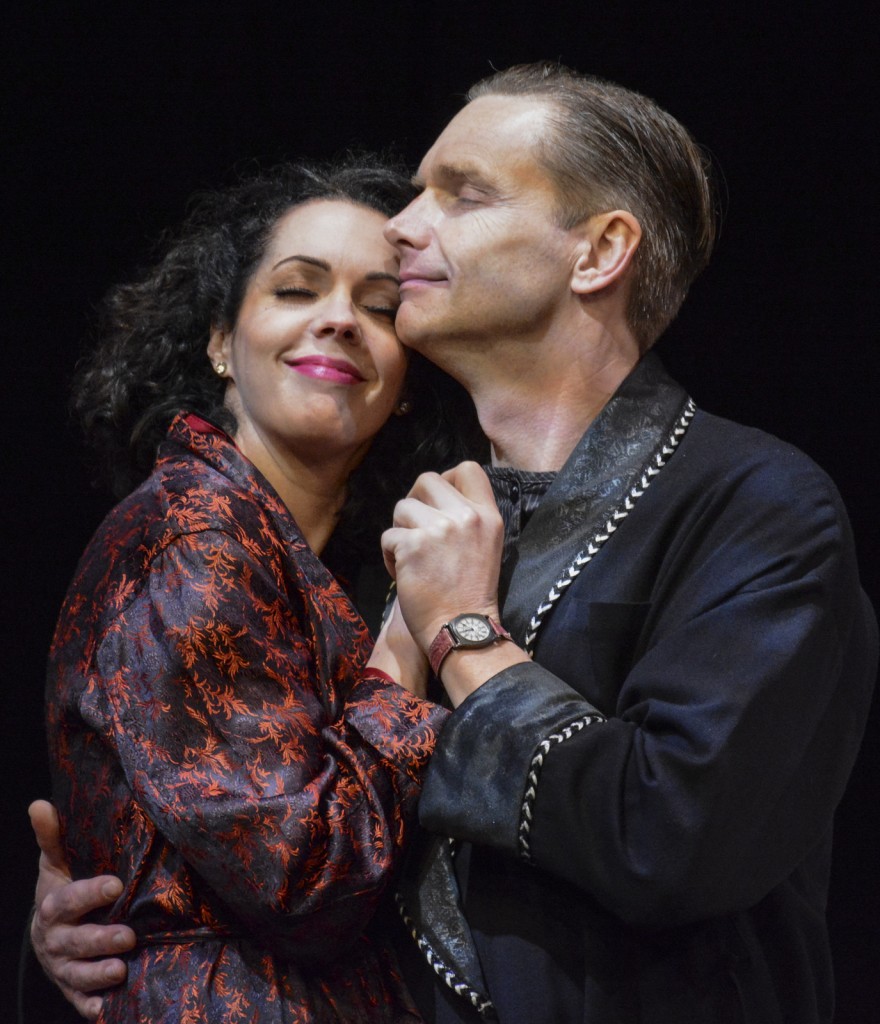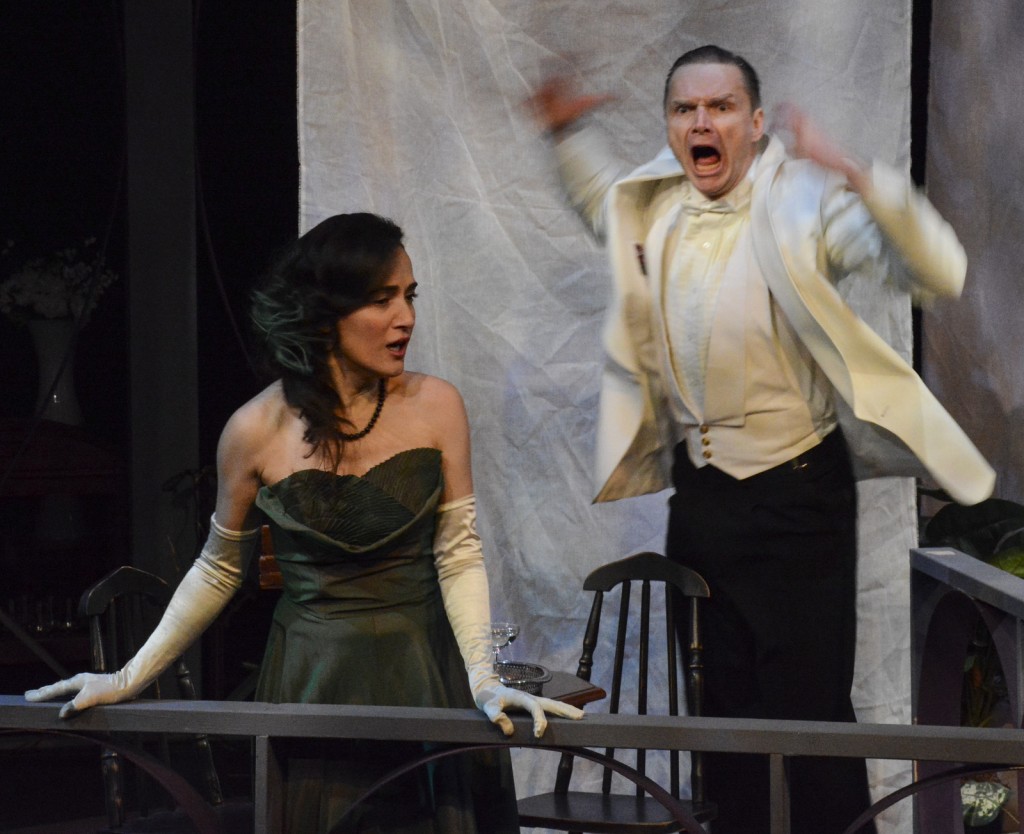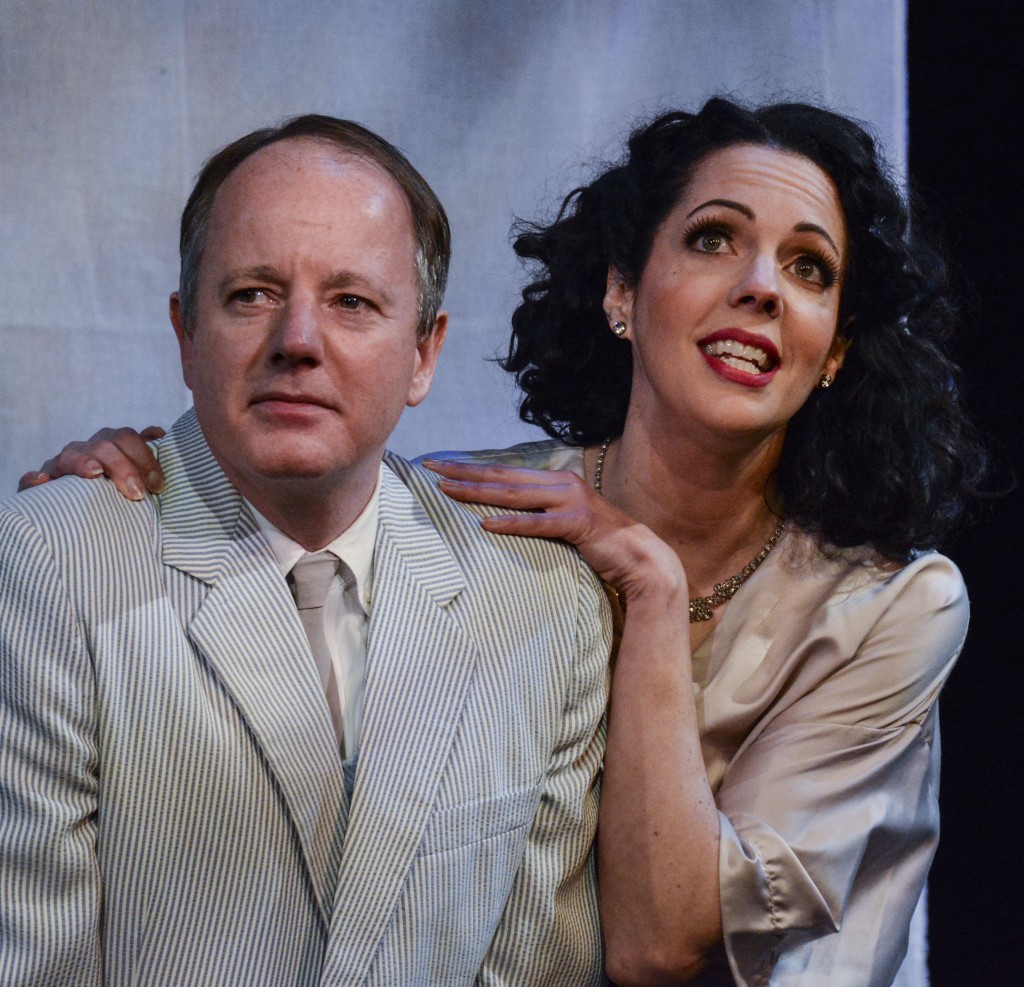
Credit: Nancy Caldwell
At Jericho Arts Centre until February 15, 2015
604-224-8007/unitedplayers.com
Posted January 26, 2015
Noel Coward’s plays are at that awkward age: not old enough to be a ‘must-see’ part of British theatre history but not contemporary enough to be very engaging.
Eighty-five years ago, Private Lives, starring Gertrude Lawrence, Lawrence Olivier and Coward himself, met with rave reviews in both London and New York. The Great Depression had just begun and WWII lay ahead. Cole Porter’s musical Anything Goes (1934) had yet to be written but Private Lives’ ‘anything goes’ sensibility offered light entertainment and relief from the woes of the period.
But perhaps Coward should be retired for a while. The arch sophistication – as seen in the constant lighting and stubbing of cigarettes, and the swanning about in dinner jackets and evening gowns – doesn’t really cut it today. Under Kevin Bennett’s direction for United Players, this is a very handsome, excellently performed production of a play about adults behaving like spoiled children. If either couple decided to procreate, one has to wonder who would do the parenting.
Elyot (Ted Cole) and Amanda (Caitlin Clugston) were divorced five years ago but now find themselves honeymooning with their respective new partners Sybil (Rebecca Husain) and Victor (Paul Griggs) at the same hotel in France. Worse, their rooms are adjacent. Matthew Bissett’s set design evokes a pair of sunny, north of Paris, seaside balconies with matching chairs and little white linen-covered tables. It’s a lovely summer evening but the tranquility is about to be shattered when Elyot and Amanda discover each other and the sparks begin to fly.
Through two more acts we follow Amanda and Elyot on the ups and downs of their impossible relationship. Naturally, they run off to Paris together, leaving Sybil and Victor to lick their wounds.

Credit: Nancy Caldwell
“Dahling”, Amanda and Elyot repeatedly say, lighting each other’s cigarettes and each other’s fire. But they – and we – are on a wagon off which they repeatedly fall with insults and snubs like Amanda’s rebuff to Elyot’s romantic advances, “Not now, dahling, it’s so soon after dinner”. Underscoring the play and repeated throughout is Coward’s song, “Some Day I’ll Find You.” Well, they’ve found each other – again.
If you’re going to do Coward, this production does have some things going for it. It’s handsome and musical; Clugston and Cole – at the piano – do a very pretty rendition of “Someday I’ll Find You” and it captures the ‘grab happiness whenever and wherever you find it’ attitude of the period. Clugston, in several 30s ensembles designed by Stephanie Elgersma, is particularly strong and brings a fine, brittle edge to Amanda. Cole is, perhaps, a little too fey as Elyot to give us a sense that there’s anything – on any level – between him and Amanda that could possibly work. But perhaps that’s what Coward intended. Husain’s Sybil is a whiny, clingy little creature that makes us doubt Elyot’s intelligence in marrying her while Griggs’ Victor is so upright that it’s impossible to see what Amanda found at all interesting in him. Do we care about these people? Not a whit.
The Act 3 scene with Cheyenne Mabberley as the French maid belongs in a French farce, not Private Lives. Pity poor Mabberley with her bloomers in the air.
There are plenty of pithy one-liners like, “Extraordinary how potent cheap music is” or “It’s discouraging how many people are shocked by honesty and how few by deceit.”
But there’s something wrong when reading Noel Coward quotes is more interesting than seeing Private Lives. Here’s another one: “People are wrong when they say opera is not what it used to be. It is what it used to be. That is what’s wrong with it.” The same might be said about Private Lives: a smash hit for years but now, despite this solid production, ready to be put on the shelf for a while. It’s definitely not what it used to be. Maybe someday we’ll find it again.

Credit: Nancy Caldwell

